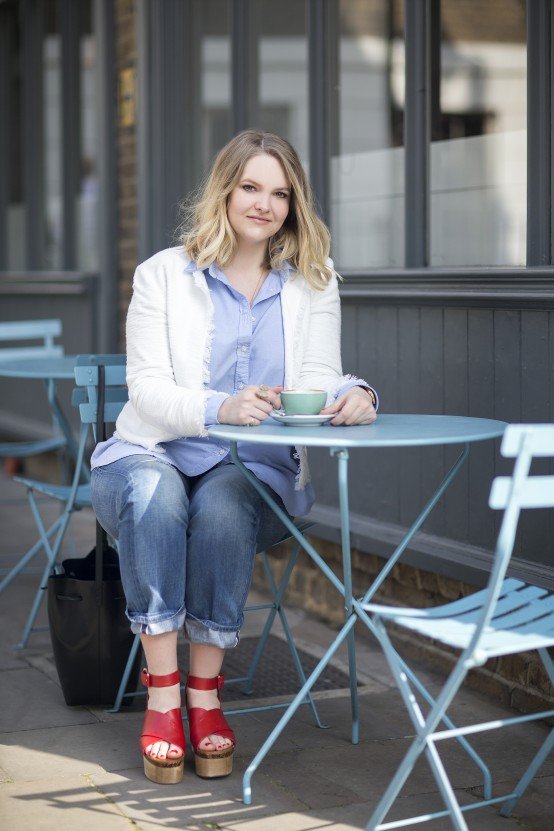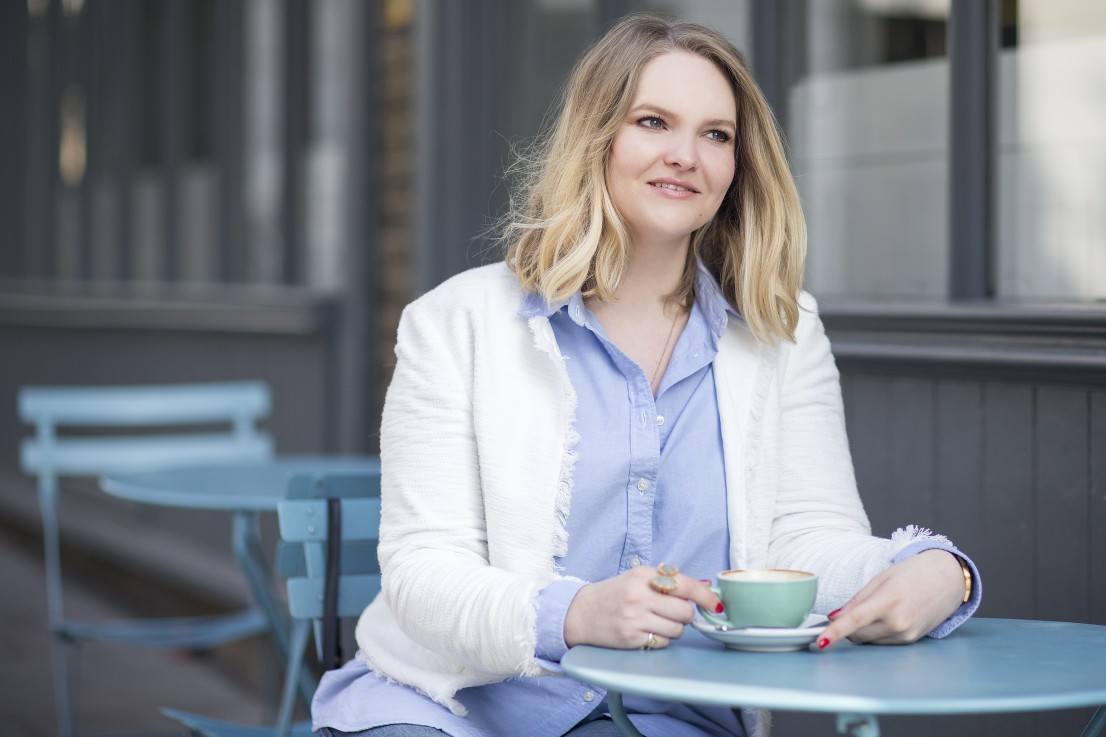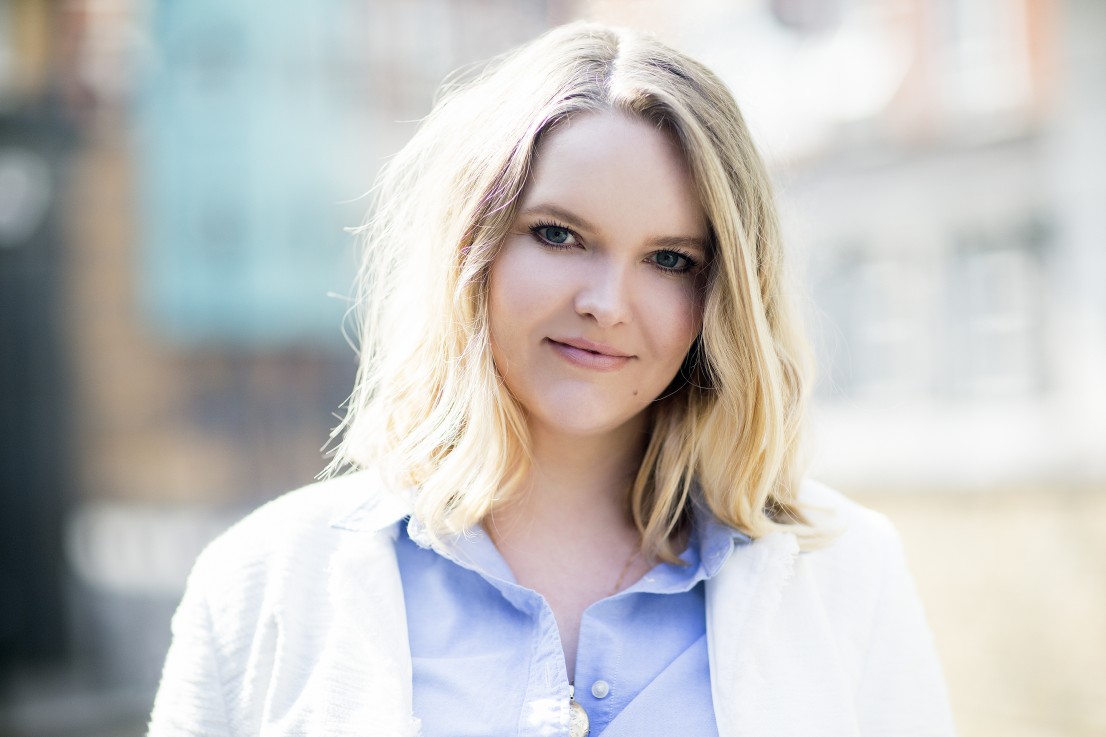I don’t tend to get bogged down in paper qualifications, but I do think it’s beneficial to learn the art of proper reporting. I have a journalism degree, as well as NCTJ qualifications in newswriting, media law, and shorthand – having those qualifications on paper (especially the NCTJ) haven’t necessarily landed me any jobs, but the professional skills they taught me have helped tremendously in becoming a good writer. It’s so important to understand how to correctly structure a story, any potential legal issues and just basic journalistic ethics. Good writing – the flair, the personality, and a clear voice – will come from practice. For me, the ultimate combination is some form of training, so that the writing is structurally sound and easy to edit; and hands-on experience, which gives you time to develop as a writer and be able to deliver within the realities (and challenges!) of the work place. Having both puts you two steps ahead of the competition.
Honestly, working in digital was not something I ever really thought about, but when I was carving out my career as a journalist, it was far easier to get experience writing for an online publication than print – the hierarchy of print over online was still very much apparent – so I naturally leaned towards digital. I instantly loved the immediacy of writing online and how reactive it allowed you to be. I loved the fact you could pitch an idea in the morning and be reading it live later that day. There was really no going back from there!
I was editor-in-chief at [fashion news website] My Fashion Life for one and a half years (I was fashion news editor for a year previous to that). My role was rich and varied – I oversaw the day-to-day running of the site and all that entailed, from writing and editing copy, and hiring/managing a team of remote writers, to the overall growth of the business and being the spokesperson for the brand at meetings and events. It was the first time I was able to directly shape something and lead the vision as I saw it. It also gave me an opportunity to work from a strategic as well as creative point of view: what will make good content for our readers as well good commercial and business sense? It forced me to think beyond the confines of a single story and to consider the greater company goals. I really appreciated the freedom I had to lead and execute – there had only been one editor-in-chief previously, and that was the founder, Michele. It took a lot of trust for her to hand over the fate of her baby to me and I never underestimated that. My time at My Fashion Life gave me the confidence to pursue my career beyond any ambitions I had previously had. I learned so much and it really sparked an appetite to aim higher.
Leaving My Fashion Life was a tough choice for me. I loved the company and my job – and it was my first editor post – but ultimately I reached a point where I felt that I’d achieved all that I could within the current boundaries and restraints we faced; my work was no longer a challenge. I like to be able to see, very clearly, the impact I’ve made in my work, and when I looked back at my time there, I felt very satisfied with all I’d achieved in that space of time – I didn’t want to plateau, and I knew I would have done if I stayed much longer. I planned on freelancing for a while after I left until I figured out what and where I wanted my next role to be. Styloko was one of the first freelance opportunities I pursued – and, as if by fate, I walked out of that meeting with a job offer as their Editor-in-Chief. It’s one of those serendipitous moments that the founders and I still look back on now and say it was meant to be!
Before My Fashion Life, I had a stint at Lula magazine, so now I’ve worked on three start-ups. For me, it’s about seeing the impact of my work in a very direct way. I love being part of something from the beginning, and seeing how an early idea can grow into something bigger and better than you’d hoped. Being part of that journey is so exciting – you’re carving a path for a company that will ultimately help it sink or float: it’s such a challenge! Working at a start-up throws out a level of pressure – and requires a level of hard work – that’s very demanding, but the rewards are so worth it. I really appreciate the flexibility that kind of environment offers – everyone’s ideas are heard and considered, and decisions don’t have to go through a tedious hierarchy system that makes sign-off impossible. It’s fast-paced and very reactive – you have to be able to adapt and iterate as you go. I can be quite impatient, so a constantly changing landscape never leaves me short of something to get stuck into. I can’t imagine myself working in any other way.
I think any decision with worthwhile rewards requires a level of risk – there are no certainties in life, especially in the workplace. The truth is, you have to have strike a balance between being a romantic and a realist: what’s the best possible outcome and what’s the worst? And is the worst really that bad? Too often people are held back by doubt or fear of failure, and while I totally get it, it’s such a shame – you’re stopping yourself before you’ve even begun. So what if you ‘fail’; what if you succeed? It reminds me of the Erin Hanson quote, ‘What if I fall? Oh, but my darling, what if you fly?’ – it’s a bit of a cliché that we’ve all seen littering our Instagram feeds but it really rings true with me. Even if things don’t go to plan, who knows what you might learn along the way? I haven’t deliberately taken a less trodden path, but I’ve always been open and flexible to every opportunity and that approach has led me to a very happy place. In my experience, my biggest risks have given me the greatest rewards. It’s very rare that things ever work out exactly to plan – don’t deny yourself the chance to do something that excites you.
Flexibility is one of the biggest things I’ve learned on the job. Especially in a start-up, ideas grow, initiatives change, and priorities shift – you have to be able to adapt and iterate as required. It’s about realising priorities and understanding what can wait. The other big thing I’ve learned is that you can do anything, but not everything. Sometimes, ambition can impact you negatively – this feeling that you should be achieving more, you should know more, you should take on more responsibility. The reality is, one person can’t do it all – and that’s ok. Accepting that there is no limit to your learning or abilities, but there is a limit to what is manageable, is key to a happy balance. And it’s fine to ask for help! There is no shame in asking for insight on something you don’t understand – quite the opposite, it shows initiative and a keenness to learn.
I’ve never been particularly strategic with my career moves – I’ve always taken the next best opportunity, so long as it’s provided me with the right landscape. Ultimately, I’ve gone down paths that provide me with room to make meaningful impact, and where I’ll be happy – that’s crucial. I think it’s difficult to be wholly strategic about a career path, at least in the early days. Having goals is fine, but if you confine yourself to a very specific idea of how things should pan out, you may never realise the full extent of your opportunities and potential. I’m a big believer in following gut feelings – you can’t plan for those!
My role as creative director and editor-in-chief at Styloko means I direct the editorial and content strategy across Styloko.com and our social platforms, as well as lead the creative vision for our brand. Essentially that boils down to being responsible for what we talk about, how we talk about it, and the look and feel of our site; I’m responsible for every aspect of our identity. No two days are the same, but generally a day will always include editing and publishing articles on The Style Hub, our editorial home; meetings with the team, either to brainstorm content and social activity or to discuss PR initiatives or product and business development; regular conversations with our CEO; and going through imagery for our homepage. I usually have meetings with our retail partners and PR companies too to see how we can work together. A lot of my day involves liaising with our retail partners about collaborative campaigns and conceiving commercial opportunities.
[show_shopthepost_widget id=”693861″]
The challenge for us is being innovative while solving simple problems: helping women discover the fashion that’s most relevant to them online. How do you innovate and push boundaries, and always be thinking about the bigger picture, while never losing sight of that core value? It can be easy to get swept up in the zeitgeist but it’s only true innovation when it’s providing a solution to a problem – anything else is just a distraction. You have to create something that’s meaningful. The other challenge is in balance: moving quickly yet strategically, adapting while remaining focused. We’re a team of perfectionists, so learning to refine as you iterate can be tricky, but it’s absolutely essential to stay ahead.
Did I always plan on becoming a writer? Well, yes and no – it’s a curious one for me! I’d always loved writing, and as a child I was obsessed with spellings (I actually looked forward to spelling tests!), so I think I always had a connection with words. But I never sat down and said ‘I want to be a writer’. When I chose to study Journalism and English at university, I truly didn’t know exactly what I wanted to do at that point, but I figured it was a good basis. I loved the idea of being a fashion journalist, but it felt like a bit of a dream job – I didn’t think I would necessarily get to do that job. My first internship at Mr. & Mrs. Smith [boutique hotel group] really changed my perspective, though – it showed me a career in journalism was possible if I wanted it, and renewed my passion for great writing.
I think the importance of digital is now undisputed – when I first started working in the space there were a lot of brands and companies who were still skeptical of the online world and didn’t want to be a part of it. There’s no choice now. Blogging has impacted the fashion industry hugely too. It was still in its infancy, relatively speaking, when I first joined My Fashion Life and now it’s an industry in and of itself. But the biggest change has been social media. When I started my first internship I remember being asked if I was on Twitter – it was still a somewhat new and novel phenomenon that hadn’t been picked up by the masses. The impact of social now is astonishing. It’s completely changed how we consume information, and in turn transformed the way brands deliver that information. Fashion week is such a prime example. Runway reports have become more or less redundant (save for the opinions of respected critics) – your audience has already seen the snaps on Instagram and the livestream online, they’re not interested when you file your review an hour post-show, unless you have something genuinely different to say. The challenge that creates is daunting – that uncertainty is scary for a lot of companies, especially those with a heritage – but it’s equally exciting and sparks creativity. The landscape is so fast-changing – you need to be able to keep up.
I honestly question the longevity of personal style blogs. I think the ones that are successful now – and will remain successful – are the ones that adapt to the changing landscape to craft a bigger business opportunity. I think we’re moving towards visual platforms that offer instantaneous consumption – just look at Instagram, Snap Chat, Meerkat, and Periscope. I think news blogs will move towards multi-channel, user-generated content – it’s a way for media companies to generate a higher volume of content for little cost. Sites like Buzz Feed are already doing it. I really appreciate news blogs that have a strong voice, though – I still love reading The Cut for its straight-talking, dry humour.
 From new writers, I look for a clear point of view and a strong voice – both in writing and in person – above all else. I love creativity and ideas, but it’s useless unless you can convey it properly. Seeing that someone can structure a story and tell that story is paramount for me, as is bringing a unique argument to the table. It goes without saying that excellent writing and grammar skills are essential – it sounds obvious but so many budding writers fall down on that piece. Really, that should be the easy part – don’t lose out on being considered for a job because you forgot to proof read! Make your copy fool-proof: if I can see a thoughtful story that needs very little work in terms of editing, it makes my life so much easier – and that’s what it’s all about. I need someone to show me why they’ll impact me and the company in a positive way. Interesting, relevant story ideas on topics we haven’t yet covered are always a good idea, too – it shows initiative and tells me that you can both conceive and create a feature from start to end.
From new writers, I look for a clear point of view and a strong voice – both in writing and in person – above all else. I love creativity and ideas, but it’s useless unless you can convey it properly. Seeing that someone can structure a story and tell that story is paramount for me, as is bringing a unique argument to the table. It goes without saying that excellent writing and grammar skills are essential – it sounds obvious but so many budding writers fall down on that piece. Really, that should be the easy part – don’t lose out on being considered for a job because you forgot to proof read! Make your copy fool-proof: if I can see a thoughtful story that needs very little work in terms of editing, it makes my life so much easier – and that’s what it’s all about. I need someone to show me why they’ll impact me and the company in a positive way. Interesting, relevant story ideas on topics we haven’t yet covered are always a good idea, too – it shows initiative and tells me that you can both conceive and create a feature from start to end.
Stay focused and immerse yourself in this world – find out as much as you can about the industry, and speak with people in it who can offer meaningful advice. That might sound impossible, but sometimes it’s as easy as reaching out to someone you admire, telling them you’re looking for advice, and that you’d love to meet for a coffee – I’ve met with plenty of young women who reached out to me for a chat. Also be open-minded to all opportunities that come your way – don’t dismiss something because it doesn’t fit this picture in your head of how it’s supposed to be. The path might be unpredictable, but it could lead you to somewhere great. Really remember that everything is a learning curve.
I’m very lucky that I have access to a great team of power women at Styloko. We have an amazing advisory board, whose expertise is rich and varied across the industry (Miriam Lahage, Bay Garnett, Andrea Linett), as well as a core team of high achievers. I especially appreciate the support of our CEO, Shannon, too – I know that I can go to her with an idea and we’ll leave the room an hour later with a plan for world domination. Luckily we both think big, so there’s a mutual allowance for those ‘bear with me…’ moments!
One of the proudest moments of my career was launching Styloko in the U.S. last year. I spent some time in February this year meeting with retailers, brands, and media in New York to strike up partnerships, and the reaction was so incredibly positive; it’s really quite amazing to see – this thing you’ve worked so hard at growing from the ground up getting recognition in a huge new market. Sometimes I have to take a step back to realise the full scale of how big that actually is.
Images by Dvora for The Lifestyle Edit. This interview was been edited and condensed.



